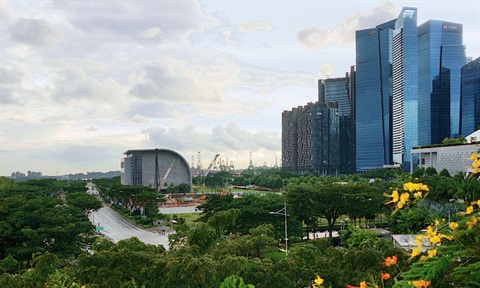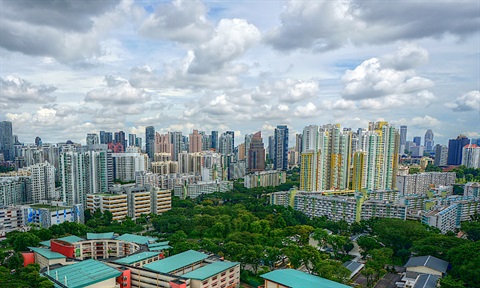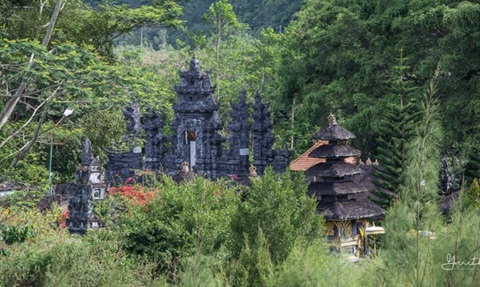Sustainability Education
Education is the key enabler of creating a sustainable world for future generations. At NTU, we seek to incorporate sustainability education for students at different stages of their learning journey, through relevant courses or programmes, to provide them with the foundation and practical tools for understanding the concepts of sustainability and applying them to solve real world problems.
Undergraduate Programmes
Since 2021, we have introduced a sustainability course in our common interdisciplinary core curriculum for all undergraduates. This course aims to develop students with the critical skills to collaborate across disciplines to systematically analyze major sustainability challenges from the perspectives of society, economy, and the environment. Students will learn to address sustainability issues from different viewpoints and at different scales. They will then use these skills to discuss and propose solutions for sustainability challenges facing Singapore and the world.
- Bachelor of Engineering in Environmental Engineering
- Bachelor of Engineering in Bioengineering
- Bachelor of Engineering in Chemical and Biomolecular Engineering
- Bachelor of Science in Environmental Earth Systems Science with three specialization options (Geosciences, Ecology, Society)
- Bachelor of Science in Environmental Earth Systems Science and Public Policy and Global Affairs
- Bachelor of Science in Chemistry and Biological Chemistry with Second Major in Environmental Science
- Bachelor of Science in Biological Sciences
- Bachelor of Science in Physics & Energy Studies and Education
- Bachelor of Arts in Geography
- Second Major in Sustainability
- Second Major in Food Science and Technology (Open to Bioengineering, Chemical and Biomolecular Engineering, Chemistry and Biological Chemistry, Biological Sciences)
- Second Major in Society and Urban Systems (Open to Civil Engineering, Electrical & Electronic Engineering, Environmental Engineering, and Mechanical Engineering)
- Minor in Environmental Sustainability
- Minor in Sustainable Urban Planning
- Minor in Environmental Management
- Minor in Environmental Humanities
- Minor in Science, Technology and Society
- Minor in Science of Learning
- Minor in Chemistry and Biological Chemistry
Postgraduate Programmes
NTU is pioneering a new push in PhD education that will tear down barriers and drive research into areas that need a multi-disciplinary approach. In keeping with global trends and needs, students at the Interdisciplinary Graduate Programme at NTU will concentrate on two or more disciplines, instead of one. Today, fresh thinking is urgently needed to mitigate many global challenges, not least in environmental sustainability, the creation of viable alternative energy solutions, and many other wide-ranging and complex issues.
Master of Science in Financial Technology
Gain the FinTech skills to navigate the changing landscape of the finance industry.
Financial Technology (FinTech) is a cluster of emerging innovations that have the potential to revolutionise the finance industry, enhancing the productivity of financial firms through data science and cyber technologies.
The Master of Science in FinTech is hosted by NTU's School of Physical and Mathematical Sciences. The curriculum is built on data science, artificial intelligence, and information technology, and provides students with the FinTech skills necessary to navigate the changing landscape of the finance industry. A strong emphasis is placed on the in-depth mastery of disruptive technologies in finance, including financial automation (e.g., robo-advisors), financial cryptography (e.g., blockchain technology), and digital financial services (e.g., financial inclusion).
- A good Bachelor's Degree in a relevant programme (e.g. quantitative majors, business, etc.)
- A TOEFL score of 85 or more, or IELTS score of 6.0 or more, for graduates of universities in which English is not the medium of instruction
- A good GMAT score or GRE score is preferred but not required
- A minimum of two years of relevant working experience is preferred but not required
The MSc in FinTech Programme is an intensive one-year full-time or two-year part-time programme by coursework, taught in 3 trimesters per academic year. The curriculum consists of two specialisations: Intelligent Process Automation (IPA) and Digital Financial Services (DFS). The courses are delivered in intensive periods of 7 weeks (i.e., with each trimester split into two halves). All courses are conducted at the NTU main campus in the evenings (6:30PM-10PM) of weekdays or Saturdays (9:30AM-1PM or 2PM-5:30PM).
- Business
- Science
- Sustainability
- Full-time
- Part-time
- Master (Coursework)
- AY2020/2021
- College of Science
- School of Physical and Mathematical Sciences
- IGP-APRU-Global Sustainability, Waste & the City
- IGP-Earth Observatory of Singapore (EOS)
- IGP-Singapore Centre for Environmental Life Sciences Engineering (SCELSE)
- IGP-Energy Research Institute @ NTU (ERI@N)
- IGP-Nanyang Environment & Water Research Institute (NEWRI)
- IGP-NTU Institute for Health Technologies (HealthTech NTU)
- GIS and Geospatial Learning in Sustainability
Sustainability has become a key theme in higher education globally. It is also by now a core component of the revised MAHE programme. The spatial thinking tools and applications that you will learn in GIS will help you to better comprehend sustainability issues as well as devise solutions for such problems. This course will enable you to apply GIS vis-a-vis cross-disciplinary perspectives in the Humanities with respect to the Southeast Asian context.
- Global Cities
This course aims to introduce the urban ways of life and appreciate the emergence of global cities beyond the Global North. The course will also include various empirical and grounded experiences of global cities around the world, especially on issues related to urban liveability, sustainability, water, housing and other urban infrastructure issues.
- Environmental Planning and Management
This course examines selected environmental challenges in urban areas and explores planning solutions and management options to avoid or mitigate such problems. Multidisciplinary, integrated solutions that follow principles of sustainability are emphasized.
- Discourses in Sustainability
The environmental and social impacts of global climate change been increasingly emphasised. Accordingly, there is a need to equip learners with the history of sustainability studies, alongside current debates and possible future trajectories of this discipline. This knowledge will help learners better understand situations related to climate change and also opportunities in fostering environmental sustainability.
- Field Inquiry in Sustainability
Fieldwork strengthens our classroom concepts and gives the opportunity to understand the world through inquiry- based learning. This course will equip learners with both the qualitative and quantitative skills to collect and interpret data in ways that can help to inform environmental solutions for a more sustainable future.
- Second Major in Sustainability
- Aspiring students with a passion for Sport Science & Management (SSM) now can complement their degree by undertaking a Second Major in Sustainability. This Second Major in Sustainability within the SSM degree programme equips students with the knowledge and skills to address pressing environmental and social challenges faced by the sports industry.
- MBA (Sustainability & Innovation) Track
- Master by Research in Earth and Environmental Science
- Doctor of Philosophy in Earth and Environmental Science
- Joint NTU-TUM Master of Science in Green Electronics
- Master of Engineering (Research) in Civil and Environmental Engineering
- Doctor of Philosophy in Civil and Environmental Engineering
- Doctor of Philosophy in Biological Sciences
- Master of Science in Civil Engineering
- Master of Science in Maritime Studies
- Master of Science in Smart Manufacturing
- Master of Science in Power Engineering
- Master of Science in Materials Science and Engineering
- MBA (Strategy & Innovation)
- Master of Science in Finance
Continuing Education
NTU Continuing Education offers a wide range of programmes and courses for working professionals that are curated from various disciplines and conducted via different learning platforms. Aligning with the Government’s concerted effort to build sustainability as a way of work, play and life, that is the Green economy, specialised topics such as Sustainability Design, Energy Management, Environmental Management and etc. are created and delivered as either short courses or semester long courses, credit-bearing and stackable towards the relevant certificate(s) such as Specialist, Graduate and/or FlexiMasters certificate.














/enri-thumbnails/careeropportunities1f0caf1c-a12d-479c-be7c-3c04e085c617.tmb-mega-menu.jpg?Culture=en&sfvrsn=d7261e3b_1)

/cradle-thumbnails/research-capabilities1516d0ba63aa44f0b4ee77a8c05263b2.tmb-mega-menu.jpg?Culture=en&sfvrsn=1bc94f8_1)

7e6fdc03-9018-4d08-9a98-8a21acbc37ba.tmb-mega-menu.jpg?Culture=en&sfvrsn=7deaf618_1)


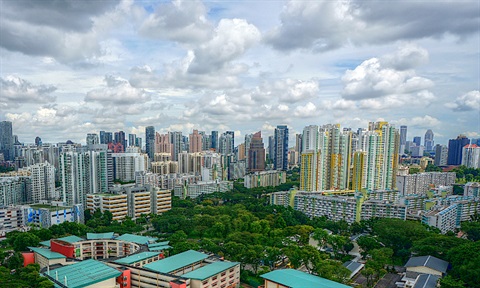





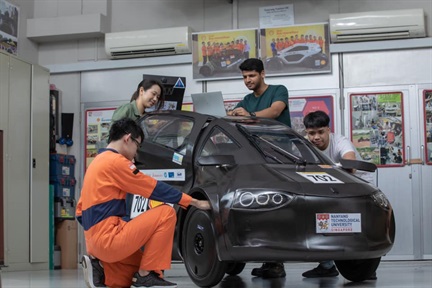

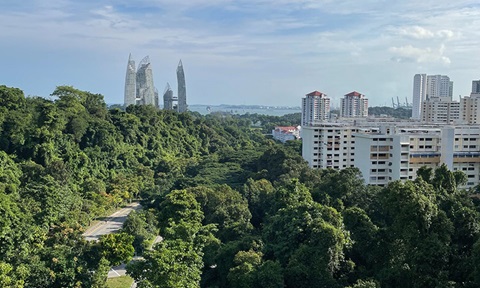
3b155ab0-477f-45d6-9972-7465366ee023.tmb-listing.jpg?Culture=en&sfvrsn=7e8fb3bc_1)


